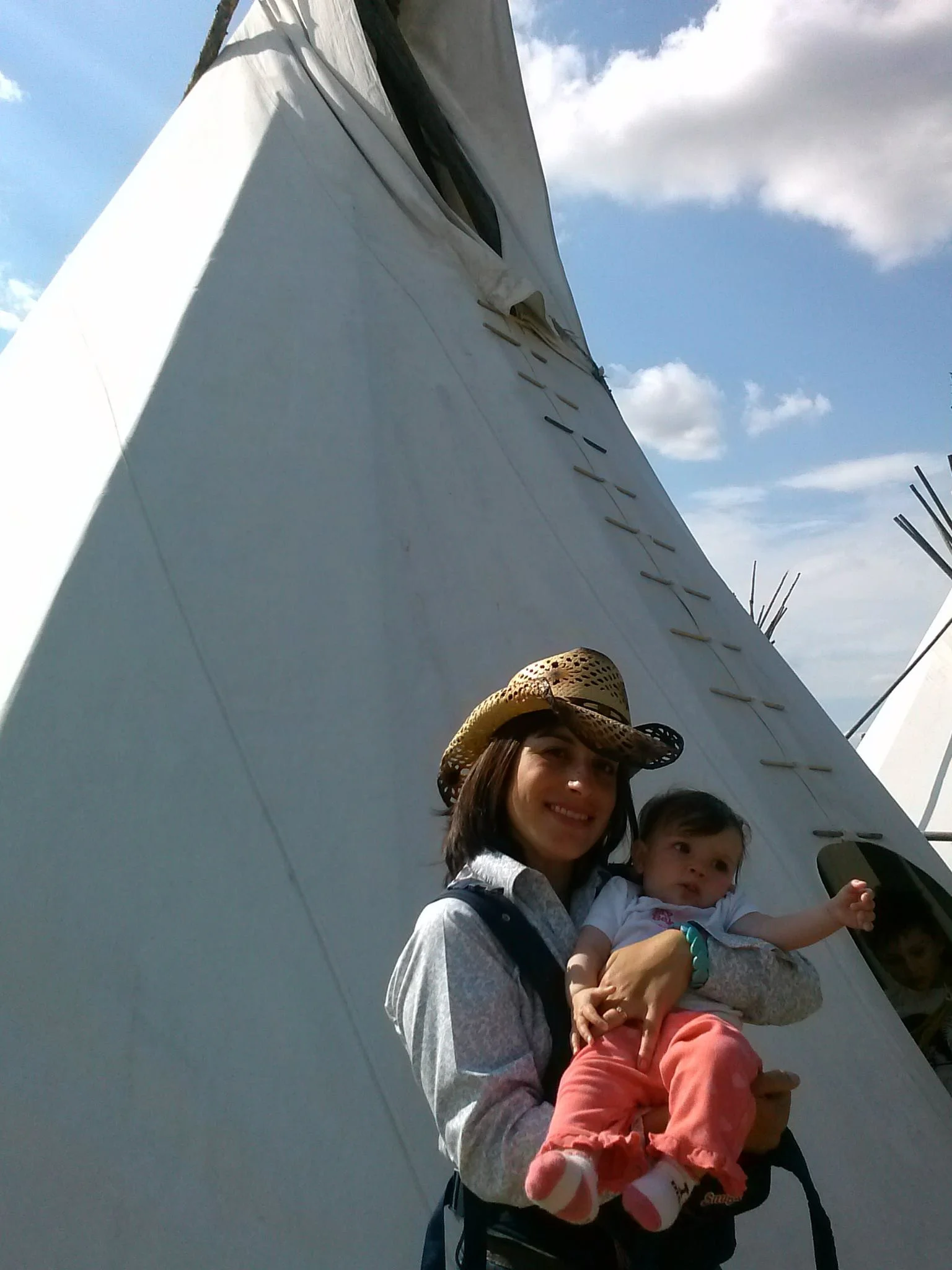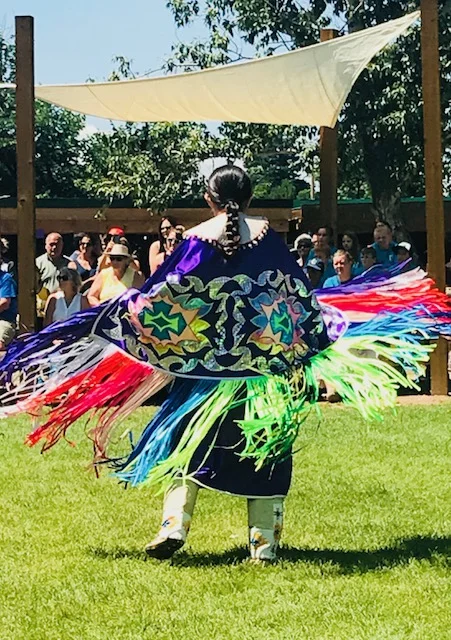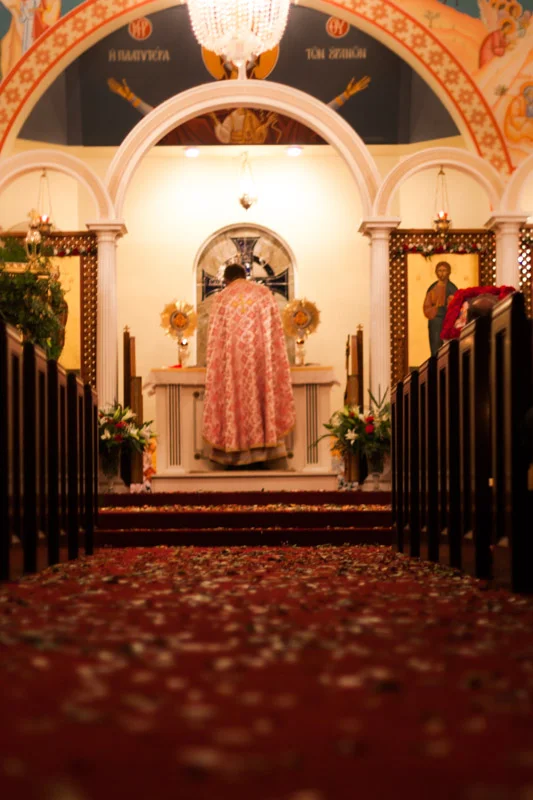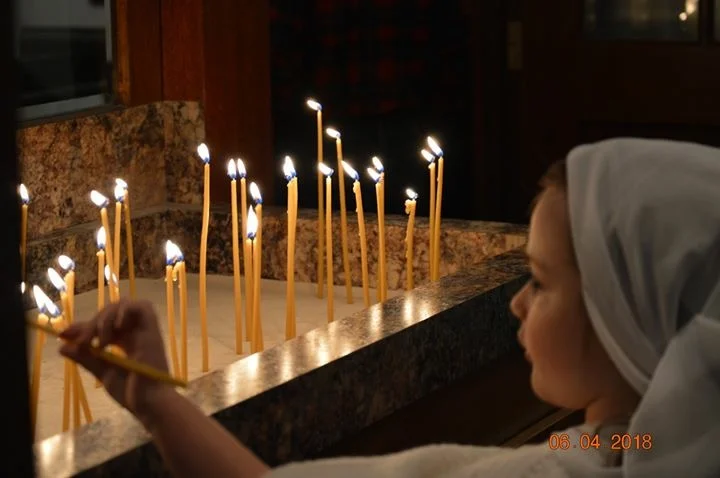Who is Tiffany Dickey?
Tiffany Dickey grew up in Massachusetts. She has worked as a registered nurse for fifteen years and currently works as a forensic nursing specialist, tending to survivors of various forms of violence. Religiously she is an Orthodox Christian. Over the last ten years, her family has lived in Massachusetts, Wisconsin and Indiana. In 2012 Tiffany moved to Wyoming when her husband accepted a job as a priest for the parish in Cheyenne. Ethnically, she is a third generation descendant of Greek immigrants. Together with her husband they have three children. She is presently studying in a graduate program for nursing leadership, which she hopes to put to use in the public health sector working towards interventions for interpersonal violence.
Excerpt from interview with Tiffany Dickey by Whitney Dow, 2018
Q: And was that the first time you became aware of your own race? Or was there another time that you really became aware of your own race?
Dickey: [01:05:41:18] I guess I had always kind of considered myself white. But at the same time, my mother always made it more so that our identity was that we were Greek. And while I think that the majority of Greeks are associated with being Europeans, who are typically white, the part of Greece where my family comes from is actually closer to the Middle East. So I’ve always kind of been confused. What am I? Am I white? Am I Greek? Am I possibly Middle Eastern?
Growing up in Western Massachusetts, there’s such a large Hispanic population. If you give me enough of a tan, they think I’m Hispanic. So I remember talking to little kids in kindergarten and them speaking Spanish to me thinking that I was Puerto Rican. So it was kind—I’ve always kind of been aware that I’m something maybe other [laughs].
Q: And when you say that you always thought of yourself as white, what does it mean to think of yourself as white? What does that mean?
Dickey: [01:06:46:23] I guess I don’t really know. I think being white maybe as a child of immigrants. I’m third generation to the United States of Greek descent. And purebred Greek [laughs], I guess, on both sides. I guess I associated that with being more of European descent than anything else. And that kind of is a large map right there.
...
Q: And what went through your head when you first heard you were being—you were moving to Wyoming?
Dickey: [01:24:43:09] I thought, wow, if you asked me ten years ago if I’d be married to an Orthodox priest and moving to Cheyenne, Wyoming, I would have said, “Are you crazy?” [Laughs] I thought I would probably spend the majority of my adult life in New England, like my parents had. That’s where my husband is also from. And so for us to kind of journey this way and keep coming farther west, it is an adventure. Although I think my grandparents that came here from Greece in the late 1800s and early 1900s would probably be pretty proud of me for not being fearful to go wherever I’m sent.
Q: Are you happy here?
Dickey: [01:25:30:02] Yes, I’m happy here. I miss my family. The biggest part for me of being in Wyoming and being out west is that I don’t have my mom, or my brothers, or dad, or siblings, aunts, uncles. Being part of a Greek descent family growing up, our average Thanksgiving had thirty people at it. And so now I can’t really have that because my husband’s responsibilities are to the church. And thus, so are mine. So we can’t take off for a week for Christmas or Thanksgiving like anybody else can. So I miss my family as far as my extended family. But I think what makes me happiest is that being here has made it so that my marriage is stronger and I rely more on my husband and my children. And we are a really tight unit. And we’ve found happiness in that and also in our friends that are here as well.
...
Dickey: [01:48:16:15] I think what’s very beautiful about the Orthodox faith is that we feel, as Orthodox Christians, that it’s our responsibility to do God’s work in this world. And so being a forensic nurse and seeing the true evil that humans can do to one another, I feel like it’s a calling in a way to help people heal from that and move beyond that. I think it has opened my eyes and made me a little more fearful for the future of the world for my children. I have three children. And so to think of the possible types of violence and crime that I won’t be able to protect them from—it’s frightening. And so then it kind of circles back around to faith and just trusting that whatever they encounter in this life, that God will give them strength to get through it.
Interview Transcript
Participant-Submitted Photos



